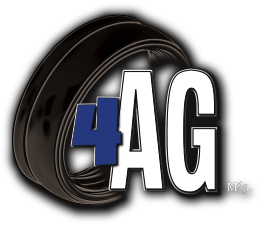How Right Equipment Can Help in Better Farming?
With the growing global population, the need to boost food supply is putting a lot of pressure on farmers to produce more. It necessitates efficiency and sustainability in farming, as well as the use of the best farming equipment such as closing wheel for planters. The goal is to produce larger yields and higher quality grain, whether you're utilizing regular grain temperature monitoring system, closing wheels or other agriculture equipment. Apart from genetically modified hybrids, high-tech instruments and smart agricultural practices have also helped to boost farm output. Farmers may now examine the weather forecasts, soil status, nutrient deficiency in the soil, the best time to plant, and other factors thanks to improved technology. In today's farming, technology and science play a critical role in increasing agricultural yield.
Farmers' actions are either directly or indirectly related to the amount of farmland produced. Every decision a farmer makes is based on their knowledge, analysis, and research of the crop. Before planting the seed, the appropriate methods, weather and soil conditions, time, and other factors should be considered. When it comes to harvest, the requisite storage facilities for gathered farm produce should be built.
How can agricultural productivity be increased?
There are a number of elements that contribute to a higher yield, ranging from planting to storage. Higher yields and crop damage are attributed to soil quality and health, seed quality, efficient farm equipment, grain temperature monitoring systems, and other factors. In addition, how different planting strategies and approaches affect the efficiency and growth of the crops. Here are some crucial suggestions for increasing your yields:
Planting seeds at the appropriate time
When it comes to seed planting, time management is crucial. It is vital to plant at the appropriate period. Planting should begin when the soil and weather conditions are right. Farmers use a variety of techniques to determine how dry (or wet) the soil is. The yield can be harmed by cold rain (or snow) and the resulting chilly damp soil. As a result, the best time to plant is when the soil is not too damp. If you think chilly soil is a problem, a cold germination seed test should be explored.
Crop rotation and mixed farming are two of the most important aspects of farming
Crop rotation throughout several seasons or years is a useful way to improve the soil's nutritional capacity. Crop rotation and mixed farming are effective ways to improve soil quality. As a result, agricultural productivity will be better and healthier. On the other hand, if the same crop is grown year after year, the soil will become deficient in nutrients, resulting in lower yields and grain quality. It will be crucial to manage the soil.
Make use of the appropriate farming equipment
Using sophisticated and high-quality farming equipment for planting crops, such as Germinator closing wheels, can assist prevent a variety of seedbed concerns. When used with the planter, the Germinator closing wheels close the furrow, preventing excessive soil compaction and air pockets. Closing the seed furrow appropriately ensures that the seed germinates and emerges in the proper manner and on time.
Inspect the farm for pests, weeds, illnesses, molds, and other problems
Pests, illnesses, molds, and other organisms can attack plants at any time and without warning. You must inspect the field on a regular basis to spot problems before the plants are harmed. Farmers must make rounds in the field to spot early indicators of pests, illnesses, and other problems so that they can be controlled and treated quickly.
Keep an eye on the soil's nutrient levels
Potassium, phosphorus, and other essential elements should all be tested in the soil. Aside from that, fertilizers are required for increasing crop nutrient removal rates and replenishing soil deficiency, both of which are required prior to seed planting.
Get rid of the weed as soon as possible
Weeds scavenge nutrients from the earth as well as the crops that have been sown. Weeds compete fiercely for the water your crops demand during drought years. They not only deplete and occupy farmland, but they also have the potential to harm the growing crop by producing nutrient deficit in both the soil and the crop. As a result, get rid of them as soon as possible and as frequently as you see them in the field.
See us at 4ag Manufacturing for closing wheels for planters. To Learn more on it, see the website.

